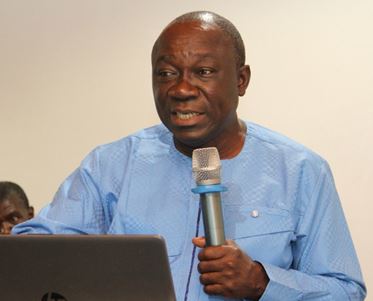By Deborah Asantewaah SARFO
The Soya Value Chain Association of Ghana (SVCAG) has raised concerns about the recent ban on soya exportation, describing it as “uncalled for”.
They bemoaned the ban’s impact, noting that it is negatively affecting the farmers and sector it is intended to protect.
According to the association’s Executive General Secretary, Yaw Afrifa, a ban on exports usually benefits local producers, yet they lack the financial muscle to purchase soybeans from farmers – and at the same time, the ban on exports is hindering exporters with available cash from buying the produce and enabling farmers to compensate for their losses caused by drought.
He therefore called on Minister of Food and Agriculture Bryan Acheampong to lift the ban, which “could complicate things” – and further suggested that if government is not willing to help processors absorb all the soya beans and prevent wastage, then the ban is unnecessary as farmers would be denied both alternatives or options… causing them to “farm consistently and still earn less”.
“We are against this ban because of the farmer. There is drought, so there is fear of lower production; and the exporter who has liquid cash and is able to give pay to compensate for the low production, you have banned him from accessing soya beans.
The processors – who we are trying to protect, to buy the soya and process it into animal-feed and soya oil – has been put out of the market because of liquidity,” he elaborated.
“So, if you stop exportation and the local processor that is supposed to buy is not capacitated to buy. What do you do?…. That ban was uncalled for. That is not what will solve the problem.”
Government, on August 26, 2024, placed a ban on the exportation of maize, rice and soya beans to sustain the local market – after a dry spell in some selected regions known for rice, soya beans and maize cultivation led to a shortage of this produce.
The association’s Northern Regional Chairman, Isaac Papanko, emphasised that for the ban to be considered, then the entire value chain should be prioritised and support the processors to purchase all available soya beans in the market.
He emphasised that excesses in the market are due to the reality of a small industry which cannot absorb “even the little that farmers produce”.
“It ‘s not that we cannot absorb, but the industry or the space is so small that even the little they produce cannot be absorbed; so that is why we have excess to be used for export,” he explained.
Concerning the restrictions on Exportation of Soya Bean Regulation 2020 (L.I. 2432) and the Export and Import – Restrictions on Exportation of Grains Regulation 2022 (L.I. 2432) passed on September 1, 2023, the association puts forth that the sector is not benefitting from these enactments – because they lack representation on the Export Restriction Committee that is responsible for granting permits to allow exports of soya beans and other legumes/grains.
The association therefore demands full representation on the committee, with voting rights to ensure that interests of the soya value chain are represented – plus a clear and accessible permit process that benefits all value chain actors.
“As for the export restriction and control committee, we are asking the government to include the soya value chain association. This will bring more efficient and effective methodology in how the committee works and promote transparency,” he said.
He added that the ministry seems to be doing the right thing, yet they lack effective consultation. So, he urged them to engage the association when making a decision and recognise contributions of CSOs as “fuel for their engine”.










